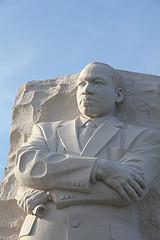Calm Leadership is Vital to Strong Community Management
In the United States, today is Martin Luther King, Jr. Day, in honor of the late civil rights leader.
A few days ago, NBC News released a full episode of “Meet the Press” from March 28, 1965, which featured Dr. King. It is embedded below.
If you watch it, you’ll notice how calm he remains throughout. Despite the very personal nature of the topic and the fact that, at multiple times, he is essentially asked if he is a communist or a hypocrite, he remains calm. This trait was undoubtedly one of Dr. King’s strengths and one of the reasons that he was such an influential leader.
Though his cause was one of vast importance, far more than the management of an average community, a community manager is a leader and leaders of all stripes can learn a great deal from Dr. King.
Being a leader means doing what you think is right, regardless of how popular it is with the community. If every decision you make is, more or less, a public poll, you are not a leader. Being a leader means doing hard things and dealing with the consequence.
Good community managers that are good leaders are always under attack. They are under attack publicly and privately, on their own community and off. They are ridiculed, criticized unfairly and their character is attacked. Welcome to management. Perhaps worst of all, many people simply believe what they read and accept it as fact.
Often times, this comes from people that were told they couldn’t do something. They may have even been banned. You must have the confidence and inner strength to be able to sort through what is important and what is not and selectively respond to what really matters, putting aside the rest.
If you are a leader, with regard to your community, you must use your authority and your voice in a responsible way because you are held to a higher standard than random critics and attackers. When you do respond, it must be considerate and calm, to send the right message to everyone involved.
This isn’t to say that one should ignore criticism, but a good filter for sorting legitimate criticism from mean spirited grand standing, can help you go a long way in this profession. It’s always important to remember that when you respond to such things, you aren’t just responding to the critic, you are speaking to everyone who will see, hear or read your message. Good leaders and great communicators understand that.

